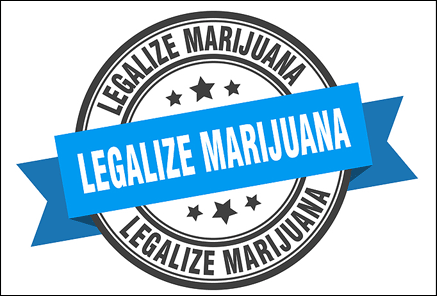By 1930 most states had criminalized the possession of marijuana. In 1970 the federal government outlawed all cannabis use. Nearly 100 years later, in 2020, the Virginia Assembly essentially decriminalized the personal use of marijuana by reducing the penalty to a mere $25.00 fine. Now, there is talk, on both a State and Federal level, of completely decriminalizing the possession of marijuana. But we may have to wait another year or two to see if that happens.
On March 1, 2021, the new marijuana law will go into effect. Specifically, in part, Virginia Code section 18.2-250.1 will read:
A. It is unlawful for any person knowingly or intentionally to possess marijuana unless the substance was obtained directly from, or pursuant to, a valid prescription…
Upon the prosecution of a person for violation of this section, ownership or occupancy of the premises or vehicle upon or in which marijuana was found shall not create a presumption that such person either knowingly or intentionally possessed such marijuana.
Any person who violates this section is subject to a civil penalty of no more than $25. A violation of this section is a civil offense…
B. Any violation of this section shall be charged by summons… No court costs shall be assessed for violations of this section. A person’s criminal history record… shall not include records of any charges or judgments for a violation of this section, and records of such charges or judgments shall not be reported to the Central Criminal Records Exchange . . .
F. No law-enforcement officer . . . may lawfully stop, search, or seize any person, place, or thing solely on the basis of the odor of marijuana and no evidence discovered or obtained pursuant to a violation of this subsection, including evidence discovered or obtained with the person’s consent, shall be admissible in any trial . . .
In Virginia, possession of marijuana with the intent to distribute will still be a crime for which a conviction could lead to up to 30 years in prison, for large quantities. Quantity alone will not be used to prove intent to distribute. However, the defendant’s intent to distribute could be proven many other ways.
But, before you decide to lite up that doobie and grab a bag of chips, remember that possession of marijuana is still a federal crime for which you could get one year in prison and a thousand dollar fine for a first offense.
Also, because possession of marijuana is still a federal crime, businesses that grow and sell marijuana are having a difficult time securing access to banking and loans. Banks are federally regulated, and they are concerned that they may be in violation of federal law if they knowingly accept drug money from a customer.
Therefore, for now, most marijuana dispensaries rely heavily on cash sales. The fact that most of their transactions are in cash, as opposed to debit or credit cards, make them a greater target of robbery and theft.
There is some evidence that a small number of marijuana stores are now accepting crypto currencies, like bitcoin. However, so far, the crypto currencies have not become popular among those that sell marijuana.
There is talk in Washington of passing legislation that would make it less risky for banks to open accounts and accept money from marijuana dispensaries. Perhaps in this next legislative session we will see some movement on that front.
House Resolution 1595, “Secure and Fair Enforcement banking Act of 2019” or the “SAFE Banking Act of 2019” would allow for banks to do business with a “cannabis-related legitimate business.” This bill has not yet been signed into law. I believe that over the next few years we will see legislation on both a state and federal level that will continue to deregulate, if not completely decriminalize, the use and possession of marijuana.


